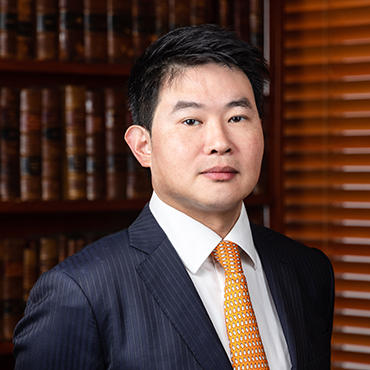Secretary for Justice v Persons Conducting in Acts Prohibited Etc (855/2023) [2024] 3 HKLRD 905, [2024] HKCA 688 (Steven Kwan, Albert NB Wong)
Gladys Li SC, Steven Kwan, Albert NB Wong and Yvonne Leung represented Chow Hang Tung in Secretary for Justice v Persons Conducting in Acts Prohibited Etc (855/2023) [2024] 3 HKLRD 905, [2024] HKCA 688.
The Secretary for Justice (the SJ) commenced proceedings and sought an injunction to prohibit four specified categories of criminal acts (the Acts) related to the song known as “Glory to Hong Kong” against unnamed persons conducting the Acts and those who would conduct the same in the future (the Defendants) (see [2024] 3 HKLRD 32). An order for service was made directing, inter alia, service of the writ on “the Defendants” by way of publication online and “anyone who opposes” the interlocutory injunction to notify the SJ and file grounds of opposition (the Substituted Service Order). X, through her then solicitors, sent to the SJ a Notice of Intention to Defend as an “Intended Defendant”. Consequently, the SJ effected service on X. In correspondence with the SJ concerning the locus of X, X indicated that she opposed the injunction but did not admit to being a “Defendant” within the description on the writ. X filed the Grounds of Opposition as the “Opposing Party”. The Judge directed that unless and until there was a proper joinder application, it was unnecessary to consider X’s locus . X filed an Acknowledgement of Service and asserted that she had become a party within the meaning of s.2 of the High Court Ordinance (Cap.4) (the HCO). The Court heard the application without allowing her legal representatives to be heard but directed that submissions filed on behalf of X would be considered on the merits. The injunction application was subsequently refused and the SJ was granted leave to appeal against that decision. While the appeal was pending, X applied for a declaration that she had been a party to the action and an additional defendant from the time she was served with the writ. The Judge dismissed her application (see [2023] 5 HKLRD 675) and later refused her leave to appeal. X now renewed her application for leave to appeal against the refusal decision on the grounds, inter alia, that: (i) she had been a party since the service of the writ on her, although not named on the record, and an additional defendant, other than the Defendants named in the writ, by reason of s.2 of the HCO; (ii) the Judge should have had regard to the context that the SJ was seeking a contra mundum injunction in aid of criminal law that would apply to everyone in Hong Kong; and (iii) the Judge’s conclusion that X was not a party or an additional defendant was irreconcilable with the Substituted Service Order.
Held, dismissing the application, that:
- (1) X was plainly not one of the Defendants named and sued by the SJ. The SJ sued the Defendants identified by description by reference to the Acts. X did not admit that she was one of the Defendants named and described in the writ. She had made it clear that she did not and did not intend to commit any of the Acts. She had also not applied to be joined as a defendant to the proceedings or to otherwise intervene in the proceedings under O.15 of the Rules of the High Court (Cap.4A, Sub.Leg.) (the RHC) (Ng Chiu Wing v Yip Hoi Ching (CACV 362/2008, [2009] HKEC 2194), Wolverhampton City Council v London Gypsies and Travellers [2023] UKSC 47 considered). (See paras.14-15.)
- (2) It was not reasonably arguable for X to contend that she was a party to the proceedings below or an additional defendant by reason of s.2 of the HCO by virtue of the service of the writ on her and her Acknowledgement of Service and giving Notice of Intention to Defend. Viewed against the factual background, the writ was served on X by the SJ in the belief and on the basis that X, as stated in the notice of intention to defend referring her as an “Intended Defendant”, was a person within the description of the Defendants named in the proceedings and who intended to contest the proceedings. Further, the Acknowledgement of Service and the Notice of Intention to Defend were purported to be made by one of the Defendants named in the writ. (See paras.16-23.)
- (3) The fact that contra mundum injunctive relief was sought in aid of criminal law did not assist X, as non-parties who may be affected may apply to join or intervene under O.15 of the RHC, or may later apply to vary or discharge the injunction if it was granted (Wolverhampton City Council v London Gypsies and Travellers [2023] UKSC 47 applied). (See para.24.)
- (4) The Substituted Service Order did not have the effect of overriding or dispensing with the procedural requirement to apply to join as a party or to intervene. The effect of the Substituted Service Order was to enable anyone opposing the injunction to come forward and state the grounds of opposition so that the court could consider and give directions on whether such persons may take part in the application and the manner and extent to which they may do so, whether as an additional defendant, an intervener or only to providing submissions (University of Hong Kong v Hong Kong Commercial Broadcasting Co Ltd [2016] 1 HKLRD 536 applied). (See para.26.)
[The above is excerpted from the headnote to the report in HKLRD.]



